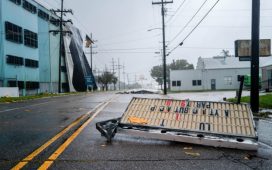Unlock the Editor’s Digest for free
Roula Khalaf, Editor of the FT, selects her favourite stories in this weekly newsletter.
Insurance Australia Group, one of the main insurers to Greensill Capital, has said that rival Tokio Marine and broker Marsh McLennan should share in any liability if investors in the failed lender win a legal battle to recover their losses.
IAG and Tokio Marine are among those being pursued by Greensill creditors, including Credit Suisse, in Australia’s federal court in a test case that will decide whether insurance policies that the collapsed supply chain finance company had should pay out.
Founded by Australian financier Lex Greensill and advised by former UK prime minister David Cameron, Greensill imploded in early 2021 after it failed to extend the terms of its insurance.
Before its collapse, Greensill would lend money to clients and take invoices from their suppliers or customers as collateral. The loans, which were insured, were then bundled into securities and sold to investors.
IAG was one of the main insurers behind $10bn of cover arranged for Greensill through Bond & Credit Co, an underwriting agency the Australian insurer owned a 50 per cent stake in before selling it to Tokio Marine in 2019. It has denied the validity of the claims, saying key policies were sold without its approval.
But in its latest court filing in Sydney this week, responding to one claim from the administrators for Greensill Bank, IAG named Tokio Marine and Marsh among “concurrent wrongdoers” that should share in any liability if it does arise from the case.
In the filing, IAG alleges that from the middle of 2019 Tokio Marine failed to ensure that its underwriting unit BCC, and the lead underwriter for Greensill, Greg Brereton, kept within the scope of what they were authorised to insure for Greensill.
It also says that Tokio Marine failed to ensure that BCC provided “complete and accurate information” to IAG on the policies provided to Greensill.
In the filing, IAG also claims that Marsh, the world’s biggest insurance broker and the company that placed Greensill’s cover with insurers, “ought reasonably to have known” that the wording of a key 2019 policy had not been agreed with IAG.
New York-based Marsh also allegedly failed to get “proper confirmation of verification” of BCC or Brereton’s authority to enter into a series of policies on IAG’s behalf “in circumstances where the combined limits of the identified policies were in excess of any other insurers underwriting trade credit insurance in the Australian market”.
Tokio Marine, which has previously declared that the Greensill policies were “obtained fraudulently” and therefore void, declined to comment. Marsh declined to comment. IAG did not immediately respond to requests for comment.
The demise of Greensill, which was backed by Japan’s SoftBank, sparked a financial and political scandal in the UK and left investors nursing big losses.
The legal fallout from the collapse is expected to take years to resolve, with discovery in the Australian insurance proceedings set to stretch into at least next year. A separate legal battle involving Credit Suisse and SoftBank looks set to drag on until at least 2025.
Credit Suisse, whose clients ploughed $10bn into funds the Swiss bank ran with Greensill, is suing SoftBank in London to try to reclaim up to $440mn borrowed by SoftBank-backed construction company Katerra, which subsequently collapsed.
In a hearing in the London high court on Monday, Mr Justice Miles outlined which documents could be used by both sides as evidence.
Credit Suisse, which was rescued by UBS earlier this year, is continuing to pursue the case against SoftBank on behalf of investors despite the Japanese company being a big client.
“They feel they have inherited the fiduciary duty on behalf of the fund investors, so they are continuing to try to reclaim the money,” said a person with knowledge of UBS’s approach to the case.










